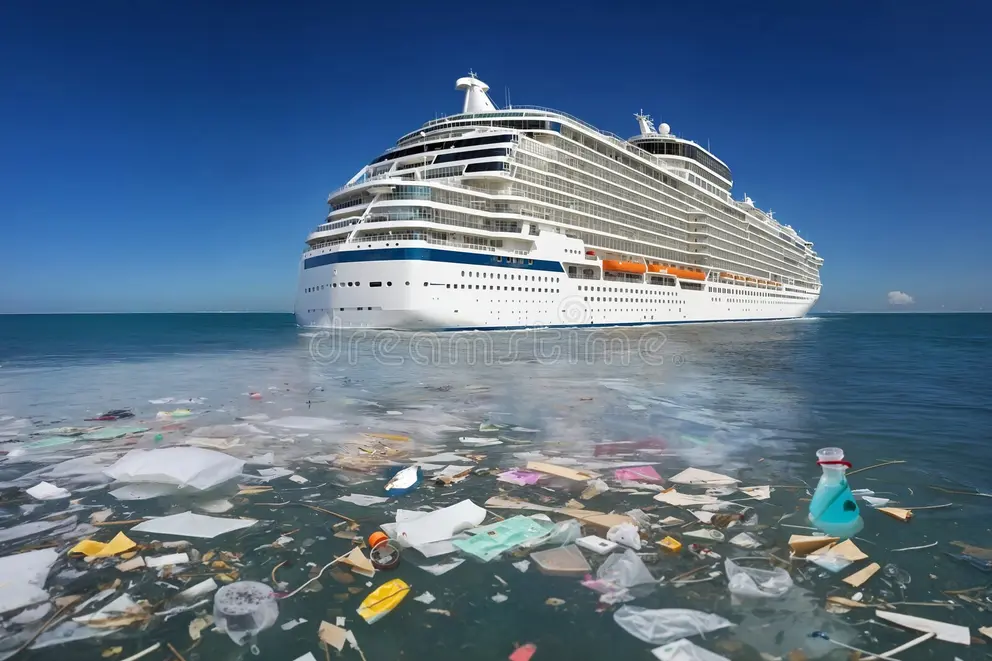Cruise ships offer luxurious and convenient travel experiences. However, their large size and extensive operations contribute to air and water pollution, disrupt marine ecosystems, and generate a large amount of waste. As the cruise industry grows,understanding its environmental footprint becomes crucial for developing sustainable practices and policies to protect our oceans and climate.
In addition to the cruise ship climate issue, recent observation shows that cruise ships pollute more than cars and other transportation. Laura Winston, an Environmental Engineer stated that “Cruise ships’ carbon footprint per passenger can be higher than commercial flights or trains. Unlike a plane, a ship powers restaurants, entertainment and lodging 24/7. That’s why we look at direct emissions and energy usage to find areas to innovate.”
Cruise ship pollution harms marine wildlife and also affects humans through air quality degradation and contaminated coastal waters.
Marine Biologist from the University of Miami Dani Escontrela stated “The dumping of waste by cruise ships can be harmful not only to wildlife, but also to humans as we are very closely connected to the resources in our oceans” When cruise ships dump waste into the ocean it doesn’t just affect animals it can hurt people too because we depend on the ocean for food, clean water, and activities like swimming and fishing.
Joe Alvarez, a former Cruise ship engineer, explained in an interview “The places we visit such as the coral reefs, the beaches, the fish they’re not guaranteed to be around forever. If the water gets dirty and the fish disappear, it’s not just the fisherman who loses out. It’s the whole experience that goes away” We should care for the environment because it’s essential for our survival, health, and future well-being.
A journalist from The Guardian newspaper, Karen McVeigh, Carnival’s 2023 total greenhouse gas emissions were 9.65m tonnes, compared with 10.9m tonnes in 2011. Carnival Cruise has started to make improvements and even though there’s still a lot of pollution, it shows they are trying to do better by using cleaner fuel and new technology. This statement indicates that Carnival, a major cruise liner, has significantly reduced its total greenhouse gas emissions over the period from 2011 to 2023.
Former Fisherman Greg Hartford stated, “The industry recognizes the importance of sustainability, and efforts are ongoing to make cruise greener.”
Issabelle Gerretson, a marine journalist pointed out that Cruise companies have started introducing measures to improve their sustainability record, such as switching to more energy-efficient appliances and engines, connecting to shore power while in port, running recycling schemes, and reducing single-use plastic on board.
Cruise ships may promise the best experience, but their environmental consequences are far-reaching. From fuel consumption to marine pollution the industry’s toil on the oceans and ecosystems demand urgent attention and innovative solutions to protect our planet’s future.

















